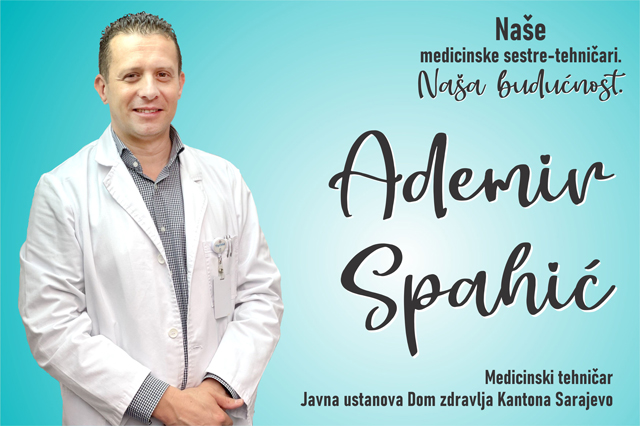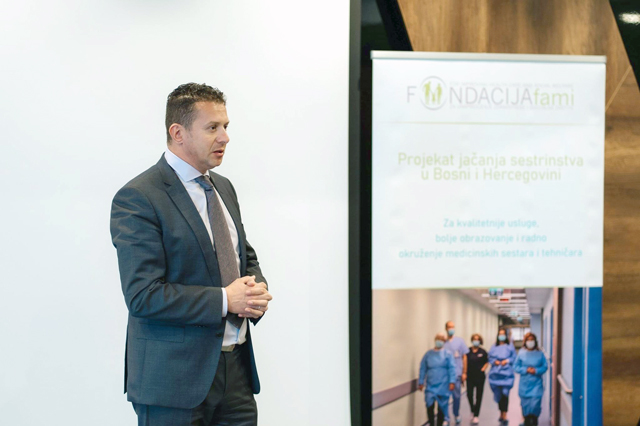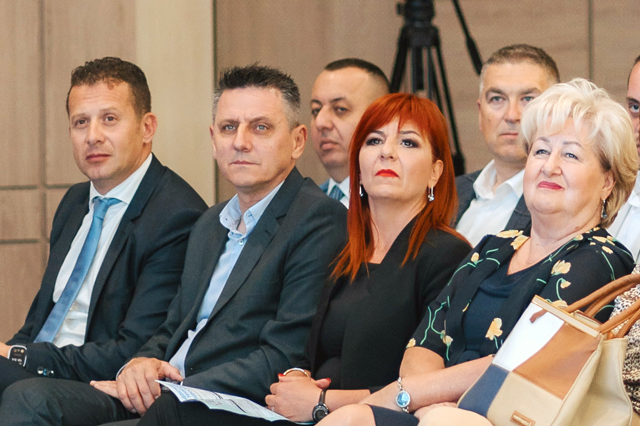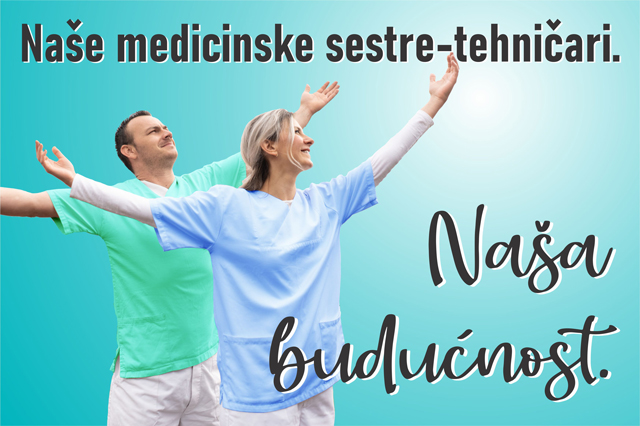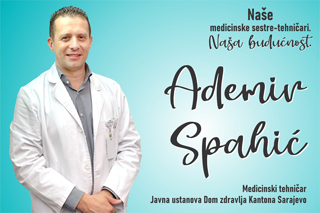
Ademir Spahic is a nurse at the Public Institution Primary Health Care Center Sarajevo and a lecturer at the Nursing Faculty, University of Sarajevo. He was born on May 8, 1977 in Sarajevo. He obtained a Doctor of Health Sciences degree in 2018. During the Covid-19 pandemic, he performed a role of Coordinator for all activities, including the organization of immunization. In 2021 he received a lifetime award from the Nursing Chamber of Sarajevo Canton and a certificate of appreciation from Sarajevo Canton Ministry of Health for his outstanding contribution to the immunization process of the population of Sarajevo Canton during the Covid-19 pandemic in the Zetra Olympic Hall.
About the beginning of his career... His first working days started at the age of 16 when he was a nursing high school first grade student in 1993. He chose this profession because he believes that caring for people's health is the most valuable thing in the world. He claims that his profession is one of the most humane.
Nurses in Bosnia and Herzegovina... Given that nursing, like other branches of health care, is developing and progressing in scientific terms, it is unfortunate that titles acquired at the Nursing Faculties are not legally recognized yet. It is necessary to change the legislation in Bosnia and Herzegovina as soon as possible, because nurses are the pillar of health care and are the most numerous in every health system.
Main shortcomings, what would you change? I would claim the following as primary shortcomings: inadequate salaries, legislative guidelines, profession not recognized by the authorities, as well as the deterioration of public health institutions due to insufficient sources of funding.
Lack of staff in certain departments and inadequate organization are key problems for provision of functional and better services at the primary health care level. What should be a priority is the functioning of community nursing in Sarajevo Canton, which is currently not at a satisfactory level. The needs of the beneficiaries are increasing every day. It is also necessary to reorganize the family medicine department according to the needs of the population. The burning problem is the reorganization of the pediatric department and its functioning in four locations in order to improve the quality of the service as well as the preventive activities - vaccination in the first place, which unfortunately has only 40% of coverage rate in Sarajevo Canton.
About health workers outflow from Bosnia and Herzegovina... It is necessary to plan education on time. I believe that it is very important to enable easier employment without unnecessary procedures, in order to prevent the enormous emigration of health workers to other countries. It is very important to provide better working conditions for nurses, a higher percentage of employment, and in synergy with nursing high schools as well as with Nursing Faculty produce staff in needed volume.
How important are nurse-patient and nurse-doctor relationships? Given that nurses are crucial in admission of patients, during diagnostics and therapeutic sessions, I believe that their support to patients is very important, as well as their psychological support, in terms of understanding the condition of the patients, the course of their illness, until the final recovery or improvement of their health. It is also very important that patients understand the work nurses do.
Nurses and doctors are part of a multidisciplinary team and as health professionals they work equally in the team, of course within the scope of their competencies.
Work and conditions during the Covid-19 pandemic... The coronavirus was a surprising disease that hit the whole world. Something new and unknown to all of us. Considering that primary health care is the basis of every health system, with all possible shortcomings and required reorganization of the health system, it managed to meet all challenges. Of course, with a clear response from both the secondary and tertiary health care level. One of the challenges was insufficient hospital capacity for patients, so there was a fear of the option that was considered by the Crisis Center, to find locations where improvised hospital units with accompanying infrastructure could be built. Thanks to the measures taken by the Crisis Center and all the activities undertaken, as well as the joint action of all health institutions, we managed to tackle all the challenges brought by the Covid-19 pandemic. I would like to point out on a very good organization of the immunization activities. We vaccinated over 200,000 of our citizens at Zetra Vaccination Point. Subsequently, by providing immunizations in large business entities, organizing vaccinations in large shopping centers and migrant camps, more than 60% of our citizens acquired vaccine immunity.
Importance of additional training for nurses in BIH... Continuous education is something that should last throughout the entire nurses’ working life, considering that in the health system and in healthcare in general, new techniques are being developed as well as new equipment that is used every day. Fami Foundation is a strategic partner to nurses in Bosnia and Herzegovina, and I would like to praise all the activities they have carried out so far, as well as the crucial thing they did for the Canton of Sarajevo – training in community nursing, that should start in full capacity very soon.
A moment that he will always remember... What I will always remember is actually my work at the surgical clinic during the war in Bosnia and Herzegovina. Very difficult working conditions and life threatening circumstances are what will remain in my mind forever.
A message to future nurse generations... Very demanding, a lot of sacrifice, a lot of investment, but the most humane profession, are my words to future nurses. One is the happiest when one can have direct influence on the health of the population. When we love something, we are ready to do anything. So is in this profession.
